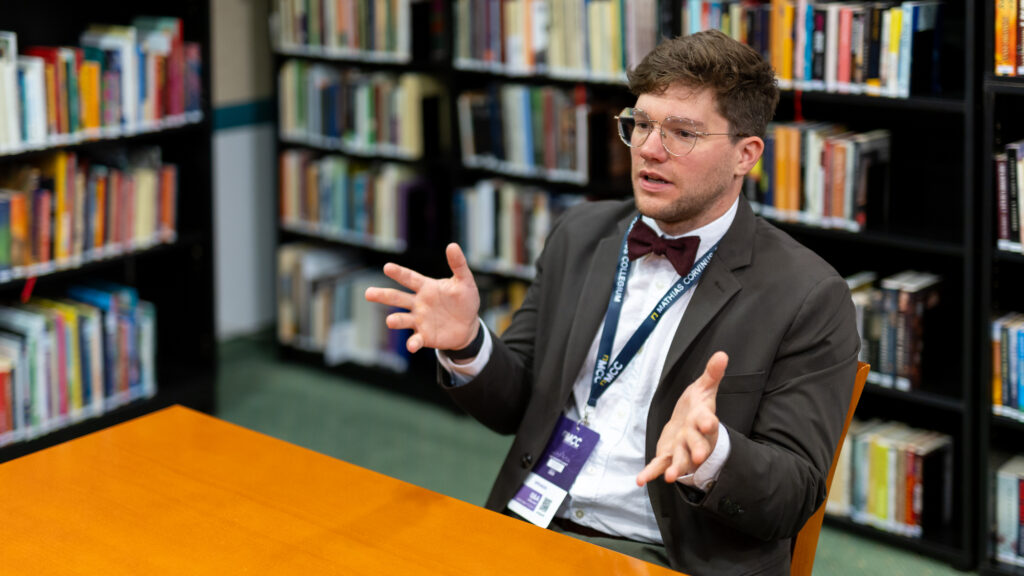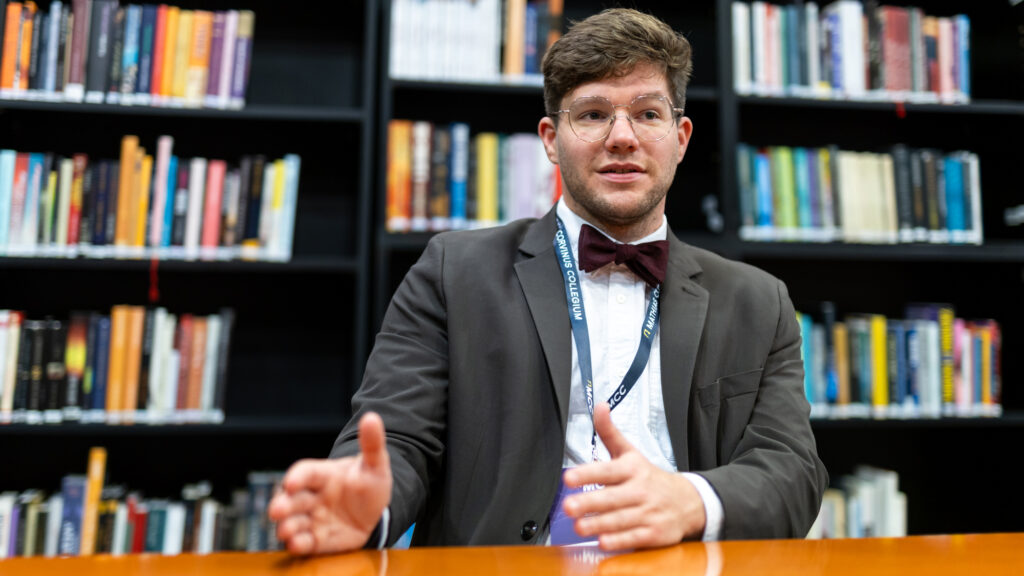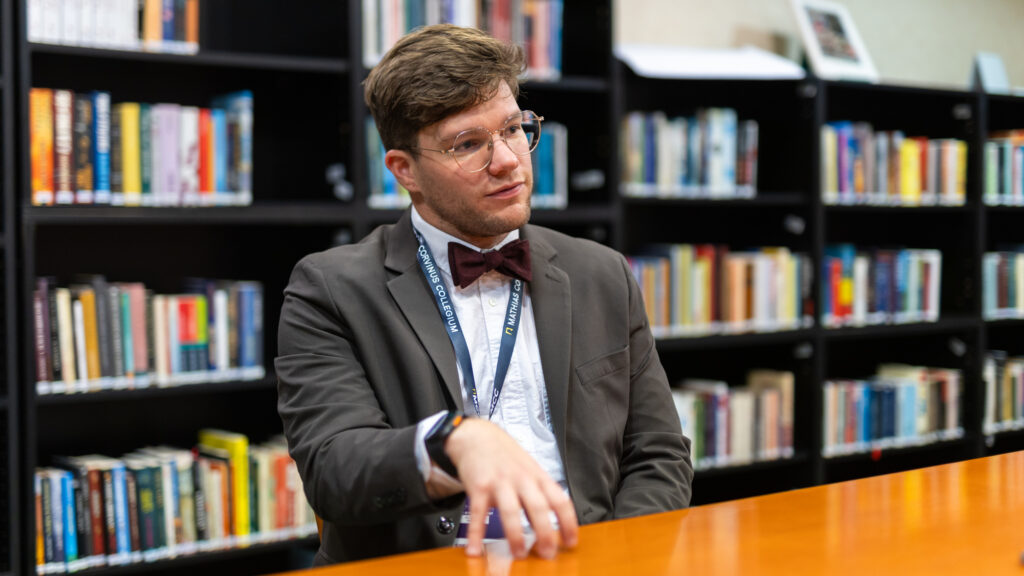In an interview at the Budapest summit of Mathias Corvinus Colongium (MCC) on technological and society political analysts at the Institute for Family Studies, Jared Hayden shared his ideas on the intersection of theology, technology and human incarnation in the digital era. The discussion covered the work remotely, artificial intelligence (AI) and broader implications of the technological advancement of society.
***
My first question concerns theology and technology, in particular embodiment in the digital age. What is your opinion on this subject, how do the functioning of the remote control and AI affect?
Many different aspects come into play when we think of incarnation and technology. I think the essential is that technology is not only a social network problem or an innovation problem. It is ultimately an anthropological problem. This is what a human being means, especially when we use tools as powerful as those we have developed in the last 50 to 100 years.
I recently spoke to my grandfather – he grew up in a rural city in Michigan in the 1940s or 50s. He remembers the day he had running water. He remembers the first time he heard a throw above and has not recognized the sound. These are moments in the watershed. Internet was one. And now AI is another.
AI is not completely new. Social media algorithms were already a kind of emerging and emerging form of AI. I think we have already used this in many ways. We live in algorithmic environments – we are already trained by them.


About remote work, some of my colleagues from the Institute for Family Studies have examined this. It turns out that fertility rates were higher for married women who stayed at home and worked at a distance. So you can’t just withdraw technology. The temptation is to decree it completely – to be fully luddite – or to love it. Or to say that it is neutral. But it’s bad. These tools are not neutral. They shape us.
“Technologies are not neutral. They come with internal logics and affect our values and behaviors ”
One of the main errors in technological policy is to say: “We are simply going to withdraw our hands, let it develop, and people will understand it. Whether it is the invisible hand of the market or simply supposing good intentions, it does not work. Technologies are not neutral. They come with internal logics and affect our values and behaviors. This is why McLuhan’s idea that “the medium is the message” counts so much.
Do you think AI is too regulated at the moment? Some people argue that it is too early to regulate anything so strongly – we don’t even know what AI will become. Shouldn’t we wait and see?
I hear this argument a lot. My colleague Michael and I in Ifs are working on these questions. It is important to become upstream in the political process. This means shaping technology before it shapes us.
Look at what happened in the United States with social media. In the 1990s, Congress adopted article 230 of the law on the decency of communications. The idea was: it is a new industry, do not settle it too much where we will suffocate growth. But what happened? These tiny online services have become massive Silicon Valley titans. And they were not held responsible for the contents of users – even if they had technology to build safer platforms. They only started to deal with when the congress threatened the regulations.
What we are trying to do right now is swimming upstream. Lots of basic technologies behind the smartphone and the Internet have come out of federal R&D. Companies like Apple have just synthesized them with new ways. So why not establish a social and family policy in this R&D phase next time?


Internet has changed the world. AI could be even more so. And the question is: what end? If we simply remove our hand from the steering wheel, the change will not necessarily serve the public good. For baby boomers, a computer may well be a tool. For millennials and generation Z, it’s a world.
We now know what we did not know at the start of the digital revolution. We have the opportunity to shape this next chapter. Why will we not use it?
We are both people who were mainly born on the internet, we now see a generation born in AI. Regarding families and especially children who grow up with this technology, how do you see potential threats and positives?
I was in a panel at DC, and during the questions and answers, someone mentioned that in their press organization, they were encouraged to use AI to summarize, but not to write. And I think it’s wise. Writing is a discursive process. This clarifies my thought. The simple fact of asking for a statistical model to spin words does not help this.
But I know people who work more in data and statistics, and they use AI to verify and amplify their work really deeply. The question is: What does that mean for everyone?
For many people, AI is like a more powerful Google. This is how it is used and integrated. And this is probably not its most beneficial use. But there are promising developments, such as medical research where AI has found new applications for existing drugs.
I also heard of a doctor who used AI to scan cancer tissue samples so that nothing was missed. This kind of thing could be vital.


However, by deciding how we use it, we must be deliberate. Nor can we assume that it is a neutral technology. It’s not just about knowing how you use the tool – this is how the tool reshapes us. Our relationships, our ways of thinking, our self -conception. A conservative approach should consider these deeper and more holistic levels – not just economics or national security.
Some of us have applauded the Trump administration for having called “human development” as a goal. But that must be defined. We must continue deliberately. You cannot just assimilate human development with economic competitiveness or job creation. These things count, but they are not sufficient.
This brings us to regulations and political response. Do you think different ideologies could unite on this question-or will it be divided?
I have no concrete prediction. In the United States, technological innovation is not only a left or right problem. The two parties supported it, even if in different ways or for different reasons. Regarding AI, there is in fact a broad agreement that it is something in which we must invest – and this is something that the United States has already invested.
But there are doubts about the severity of the right of regulation. The age verification laws for technology have obtained strong bipartisan support. It is encouraging. But with AI, you always have the impression that many people think it’s just a neutral tool – everything is on how you use it.
The state of mind that AI is only a tool delays the regulation. This means that we will only act after AI is already fully integrated into society. This is what happened with smartphones and social media. And now we are playing catch -up.


Last month, the Chamber approved the language in a spending bill that would create a 1 -year moratorium on AI regulation at the state level. It is deeply worrying. Even if AI is still developing, we should not prevent states from acting. It is naive to think that we can wait. However, there are increasing bipartite coalitions, in particular concerns like AI in education and the effects of children’s technology.
“We must understand that these companies – these AI developers – are mainly focused on profit. They care about human rights or security as insofar as it helps their net profit ”
For the moment, however, it looks more like the full speed of the Trump administration. Meanwhile, some in the Biden administration explored things such as IA classification. I’m not sure it’s the right approach either. But we must understand that these companies – these AI developers – are mainly focused on profit. They care about human rights or security only insofar as it helps their net profit.
I hope that the Conservatives wake up to this and take the leadership leaders – not to control the market, but to promote real human development. Not just prosperity, but the good of the person, families, communities. This is what is at stake.
More of the event:


